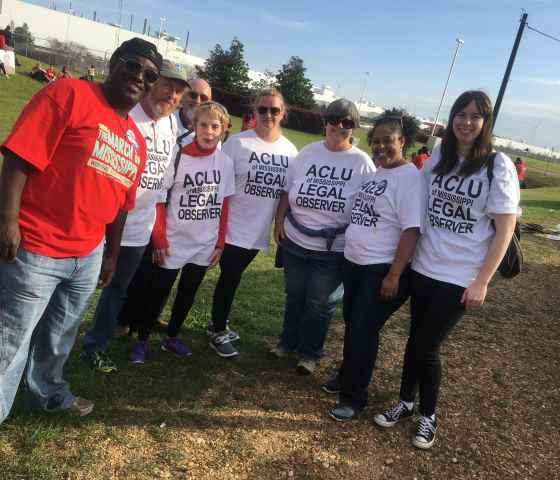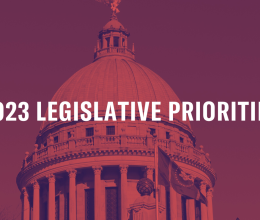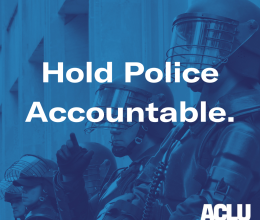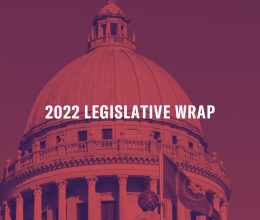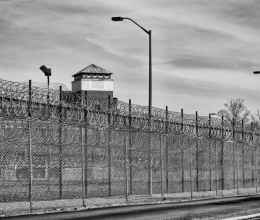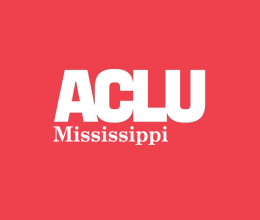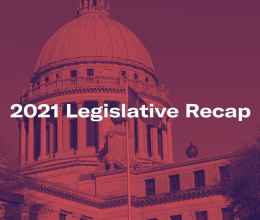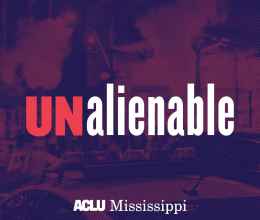Taking photographs of things that are plainly visible from public spaces is a constitutional right – and that includes federal buildings, transportation facilities, and police and other government officials carrying out their duties. Unfortunately, there is a widespread, continuing pattern of law enforcement officers ordering people to stop taking photographs from public places, and harassing, detaining and arresting those who fail to comply. Learn more »
Your rights as a photographer:
- When in public spaces where you are lawfully present you have the right to photograph anything that is in plain view. That includes pictures of federal buildings, transportation facilities, and police. Such photography is a form of public oversight over the government and is important in a free society.
- When you are on private property, the property owner may set rules about the taking of photographs. If you disobey the property owner's rules, they can order you off their property (and have you arrested for trespassing if you do not comply).
- Police officers may not confiscate or demand to view your digital photographs or video without a warrant. The Supreme Court has ruled that police may not search your cell phone when they arrest you, unless they get a warrant. Although the court did not specifically rule on whether law enforcement may search other electronic devices such as a standalone camera, the ACLU believes that the constitution broadly prevents warrantless searches of your digital data. It is possible that courts may approve the temporary warrantless seizure of a camera in certain extreme “exigent” circumstances such as where necessary to save a life, or where police have a reasonable, good-faith belief that doing so is necessary to prevent the destruction of evidence of a crime while they seek a warrant.
- Police may not delete your photographs or video under any circumstances. Officers have faced felony charges of evidence tampering as well as obstruction and theft for taking a photographer’s memory card.
- Police officers may legitimately order citizens to cease activities that are truly interfering with legitimate law enforcement operations. Professional officers, however, realize that such operations are subject to public scrutiny, including by citizens photographing them.
- Note that the right to photograph does not give you a right to break any other laws. For example, if you are trespassing to take photographs, you may still be charged with trespass.
If you are stopped or detained for taking photographs:
- Always remain polite and never physically resist a police officer.
- If stopped for photography, the right question to ask is, "am I free to go?" If the officer says no, then you are being detained, something that under the law an officer cannot do without reasonable suspicion that you have or are about to commit a crime or are in the process of doing so. Until you ask to leave, your being stopped is considered voluntary under the law and is legal.
- If you are detained, politely ask what crime you are suspected of committing, and remind the officer that taking photographs is your right under the First Amendment and does not constitute reasonable suspicion of criminal activity.
Special considerations when videotaping:
With regards to videotaping, there is an important legal distinction between a visual photographic record (fully protected) and the audio portion of a videotape, which some states have tried to regulate under state wiretapping laws.
- Such laws are generally intended to accomplish the important privacy-protecting goal of prohibiting audio "bugging" of private conversations. However, in nearly all cases audio recording the police is legal.
- In states that allow recording with the consent of just one party to the conversation, you can tape your own interactions with officers without violating wiretap statutes (since you are one of the parties).
- In situations where you are an observer but not a part of the conversation, or in states where all parties to a conversation must consent to taping, the legality of taping will depend on whether the state's prohibition on taping applies only when there is a reasonable expectation of privacy. But no state court has held that police officers performing their job in public have a reasonable expectation.
- The ACLU believes that laws that ban the taping of public officials' public statements without their consent violate the First Amendment. A summary of state wiretapping laws can be found here.
Photography at the airport
Photography has also served as an important check on government power in the airline security context.
The Transportation Security Administration (TSA) acknowledges that photography is permitted in and around airline security checkpoints as long as you're not interfering with the screening process. The TSA does ask that its security monitors not be photographed, though it is not clear whether they have any legal basis for such a restriction when the monitors are plainly viewable by the traveling public.
The TSA also warns that local or airport regulations may impose restrictions that the TSA does not. It is difficult to determine if any localities or airport authorities actually have such rules. If you are told you cannot take photographs in an airport you should ask what the legal authority for that rule is.
The ACLU does not believe that restrictions on photography in the public areas of publicly operated airports are constitutional.
The Department of Justice Recommendations
The Department of Justice released guidelines on the right to record and recommends police policies do the following:
- Affirmatively set forth the First Amendment right to record police activity;
- Describe the range of prohibited police responses to individuals observing or recording the police;
- Clearly describe when an individual’s actions amount to interference with police duties;
- Provide clear guidance on the necessity of supervisory review of any proposed action to be taken by officers against an individual who is recording police;
- Describe the narrow circumstances under which it is permissible for officers to seize recordings and recording devices; and
- Indicate that no higher burden be placed on individuals exercising their right to record police activity than that placed on members of the press.
For more information on the Right to Record click here.
